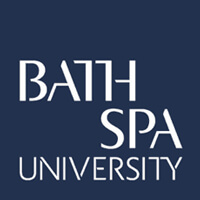fees waived
Games Development, BA (Hons)
Bath Spa University, United Kingdom
Ranking in UK
Computer Science and Information Systems
Computer Science
Computer Science
Costs
food & rent S$18.8K / year
Entry requirements
Scholarships
2 available
Unlimited quantity
Unlimited quantity
Unlimited quantity
Limited quantity
Information
Code
Code
Intakes
Website (External)
Programmes
Information
Duration
2028
Transform your passion for games into a professional career through our hands-on, industry-oriented Games Development course. You will create a varied portfolio of games and interactive experiences that highlight your skills and foster innovation, while gaining creative and technical expertise through boundary-pushing projects. Essential abilities like collaboration, adaptability, and professional practices will be developed, preparing you for diverse roles in the global games sector, whether in artistic, technical, or production areas. This program equips you with the creative, computing, and professional tools to realize your game ideas as published works, encouraging expressive storytelling and forward-thinking design in workshops and labs.The course spans three years, starting with building tabletop games and prototypes, covering topics like game psychology, history, engines, coding, and design. Year two focuses on 2D, 3D, and VR games, including narratives, marketing, modelling, and extended realities. Year three involves serious and tangible games, exploring AI, data visualization, and studio workflows. Assessment is fully coursework-based, involving game development, portfolios, design documents, pitches, UX testing, and collaborative events to build industry-relevant communication skills.
Year one: build a tabletop game and a portfolio of mini game prototypes. Key topics include: understanding game concepts, rules, and the psychology of gaming; history of gaming and games theory; introduction to game engines and coding; graphic design, illustration for 2D character, and level design; prototyping and testing games concepts. Year two: build a 2D, a 3D, and a VR game. Key topics include: technical development and design skills for both 2D and 3D games; writing interactive narratives, marketing and entrepreneurship, 3D modelling and animation, web games, sound design, extended realities working with the Bristol VR Lab. Year three: build a serious game, a tangible game, and a playful interactive entertainment experience. Key topics include: serious games; data visualisation; AI and machine learning; tangible games; real-time interaction using game engine technologies; commercial games studio workflows.
A local representative of Bath Spa University in Singapore is available online to assist you with enquiries about this course.

